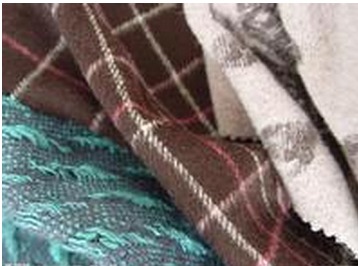 A number of Brazilian companies in Shaoxing County, Zhejiang Province, expressed concern over the development of the Brazilian market. This was due to a new customs clearance policy implemented recently in Brazil. Customs did not have to ship original ocean bills of lading. Many people said that Brazil’s new policy on delivery of goods without B/L has greatly increased the risk of foreign exchange collection for Brazilian export companies, which may result in the export companies failing to pay back the balance.
A number of Brazilian companies in Shaoxing County, Zhejiang Province, expressed concern over the development of the Brazilian market. This was due to a new customs clearance policy implemented recently in Brazil. Customs did not have to ship original ocean bills of lading. Many people said that Brazil’s new policy on delivery of goods without B/L has greatly increased the risk of foreign exchange collection for Brazilian export companies, which may result in the export companies failing to pay back the balance. “Brazil is an emerging market that Shaoxing County textile exporting companies have focused on.†The relevant person in charge of the County Bureau of Commerce told the reporter that the annual turnover of Brazil’s exports to Shaoxing County is close to one billion US dollars. In addition, it is understood that in recent years, China-Brazil textile and apparel trade has grown rapidly, and the growth rate has reached a new high year after year. In 2011, China’s textile and apparel exports to Brazil reached US$3.543 billion. Fabrics are still the main commodities exported to Brazil, accounting for This was 42%; clothing grew 74% year-on-year. In particular, the World Cup and Olympic Games to be held in Brazil in 2014 and 2016 will also provide new opportunities for textile and apparel suppliers around the world.
"In the face of such a large business opportunity, our exporting enterprises should firmly grasp and not give up because of policy adjustments." To this end, in response to the current concerns of the export enterprises in Shaoxing County regarding the customs clearance of Brazil, the County Business Bureau Soon commissioned the China Export Credit Insurance Corporation to investigate the customs clearance of Brazilian customs.
A few days ago, the "Change in Customs Clearance Procedures in Brazil" was released. As verified by the Commercial Counselor's Office of Brazil in Brazil, Brazil's customs clearance policy introduced in 2006 required importers to provide the original ocean bill of lading before delivery. On May 6th, the New Deal, the customs accepted the electronic bill of lading and checked the import at the customs agency. When the documents are cleared, the importer is no longer required to provide the original bill of lading, but the original bill of lading is still required when loading and unloading goods out of the customs warehouse. “The delivery from the customs warehouse is the final step in the customs clearance process. At this time, the customs warehouse staff asks the consignee (importer or transportation company) to issue a full set of documents issued by the customs administration, including the original bill of lading. At the same time, what’s more important is that The goods were extracted on the premise that the carrier unlocked the electronic bill of lading in the customs system, which provided double insurance for the goods withdrawal.†The relevant person in charge of the office of the CITIC Securities Shaoxing believes that the New Deal has cancelled the importer The obligation to submit the original bill of lading to the customs, but in fact, in some aspects of the entire customs clearance process, the original bill of lading is still an obligatory document. Therefore, the Brazilian new customs clearance policy “having a single bill of lading†is not completely correct, to some extent Mislead exporting companies.
In the development of foreign trade, any market, any policy changes, there are certain risks for export companies, this time the new customs clearance in Brazil is no exception. The person in charge of the CITIC Baoxing Office reminded the exporting companies, especially those exporting to the Brazilian market, that in order to reduce the risks associated with the Brazilian New Deal, the exporter and the carrier must follow a very important principle. That is, the exporter must ensure that the original bill of lading acts as a certificate of the right to the goods, and the carrier must try to control the goods to ensure that their sea freight and related expenses can be paid in full.
“In order to control the risk, my office recommends that exporters should obtain an extremely important document as far as possible: acceptance **,†the person in charge also reminded the exporter that it is necessary to choose the carrier with high credit or freight forwarding as possible. Reducing the risk of providing copies of bills of lading to importers without their permission.
Casual Shoes,White Casual Shoes,White Casual Shoes,Bata Casual Shoes
Huaying Shoes Co. Ltd , https://www.hya3shoes.com